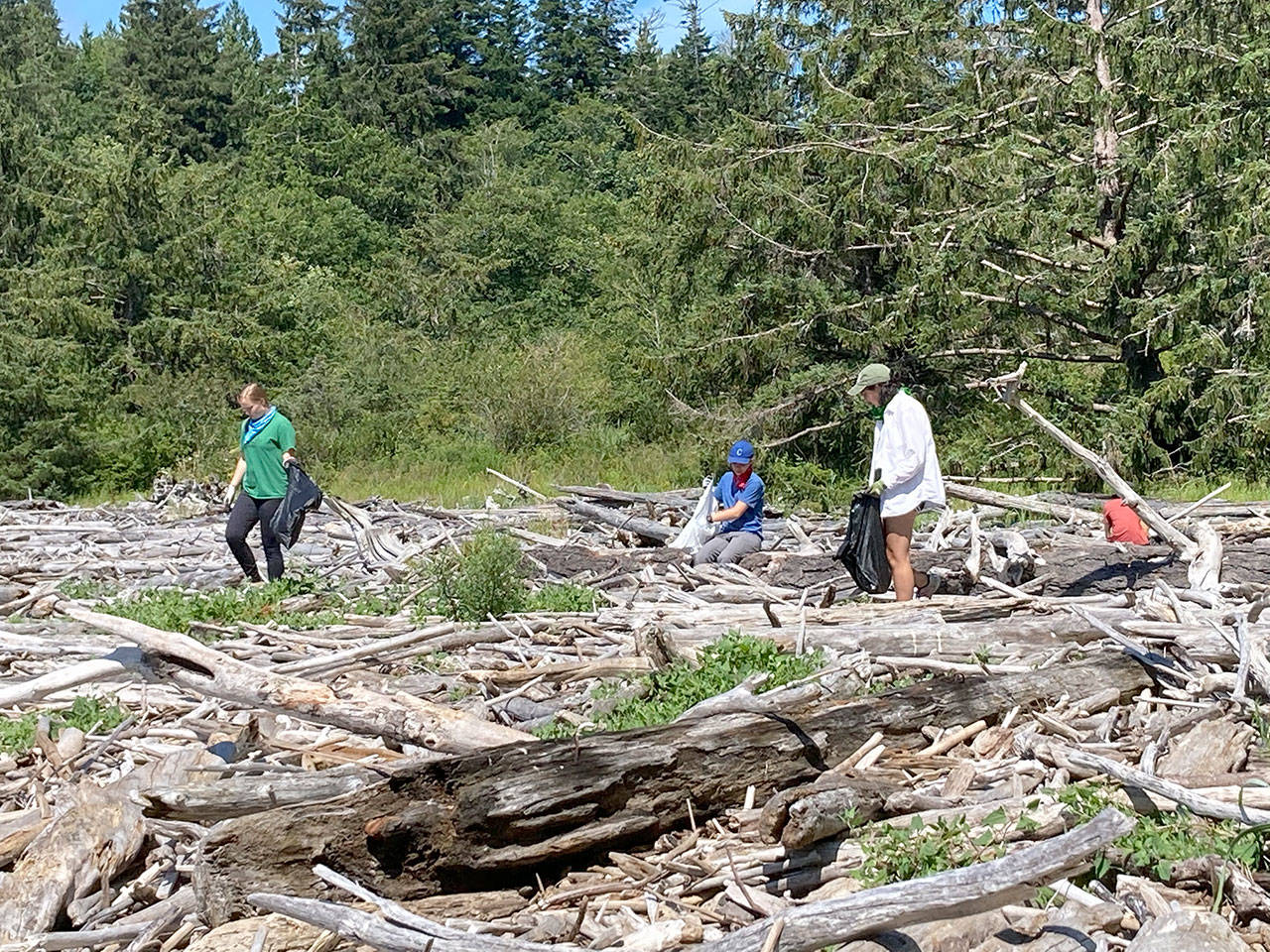QUILCENE — It was hot work on a summer day, but four teens made cleaning litter from a Tarboo Bay beach an exercise in creativity.
“Picking up trash on a hot summer day doesn’t have to be a chore,” said Eugenia Frank, one of the graduates of the Northwest Watershed Institute’s (NWI) Youth Environmental Stewards program (YES!) who was enlisted in the cleanup by fellow alumna Ava Vaughan.
Having worked together before, the team created a contest with prizes for the largest piece of trash, farthest travel, and most imaginative tale of how the trash arrived, said Jude Rubin of NWI.
After the cleanup, they invented stories about ancient Roman breastplates, lottery-winning and trash-carrying eagles, using the most intriguing pieces of litter they found as inspiration.
Vaughan, a high school junior who lives near the Dabob Bay Natural Area, had single-handedly maintained a restoration site near the mouth of the bay for her YES! independent project, Rubin said.
She noticed the area needed a cleanup and brought fellow YES! alumni Eugenia Frank, Viola Frank and Ben Tyler in to clean the beach of trash with her.
The cleanup was with help from NWI and in conjunction with Rock Point Oyster Company.
“I feel a connection because Tarboo Bay is so close to my home, but I was inspired that others wanted to help, too,” Vaughan said.
The four teens, along with Rubin, headed out first thing Tuesday morning, masked and 6 feet apart. Scrambling through dense driftwood they gathered, sorted, and they bagged up beach litter brought in by the tide.
Their goal was to protect natural ecosystem and preserve the Tarboo Natural Area Preserve, Rubin said.
Most of what the team collected was rope, netting and other refuse from shellfish farms, some from as far away as Port Gamble.
The Rock Point Oyster Company hauled away the collected debris after the teens collected it Tuesday.
The team had some key realizations during the cleanup, Rubin said.
“There is more to this beach than meets the eye,” Tyler said.
Eugenia Frank agreed.
“It’s not visibly littered, but as soon as you start looking [under the driftwood], you see just how much trash there is.”
Viola Frank noticed a lot of micro-plastics.
“Sometimes it’s hard to just keep moving,” she said. “You can’t pick up every single piece.”
The group hopes its actions will inspire others to complete similar projects.
“You don’t need special permission to pick up trash on public lands; it is something anyone can do, even during the pandemic,” Rubin said.
Vaughan added: “A project like this is an achievable goal. It started like any other: with only an idea.”
The Dabob Bay Natural Area was established in 1984 to protect rare examples of intact salt marsh and sand spit plant communities within one of the state’s highest-functioning coastal spit and tidal wetland systems, Rubin said, adding that it was expanded to include a Natural Resource Conservation Area (NRCA) in 2016.
The YES! Program continues this summer with other small COVID-19 compliant teen-led outdoor events.

